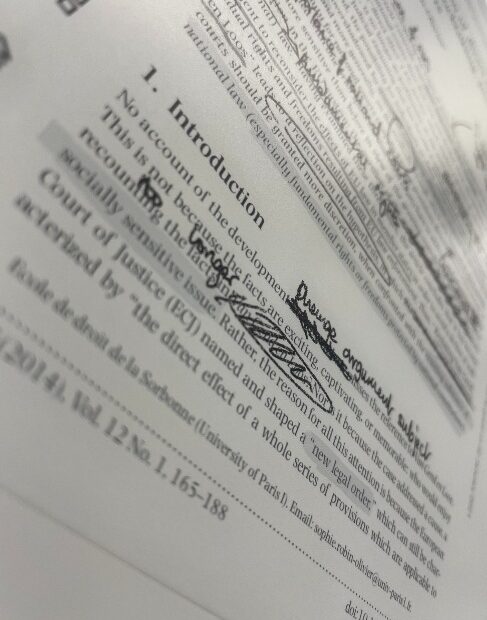What does a typical day look like?
One of the best parts of being a junior Criminal Barrister is the variety – there is no such thing as a “typical day”.
It’s common to get papers the night before a trial which is due to happen the next morning. Evenings are spent preparing. The early hours are often spent on trains – you could be needed anywhere in the country.
You will learn something new from every case. Occasionally that will be law, but just as important are the things I have learned about judgement, and making sure clients feel supported and heard. These are harder to pick up from a textbook.
The best part of my job?
This job has highs and lows, with very little in between. On days when it goes well, when it seems like something I said made a difference or the client was happy, there is no better feeling. The flipside of that is learning to cope after a difficult day without letting it affect the next case.
Being a barrister is hard, but it is also a privilege. I continue to think that there is real value to doing this work with fight and enthusiasm. Every morning someone is relying on you to turn up and be a voice for them. You will never be bored.
What do you need to qualify as a barrister?
Many people take indirect paths to the Criminal Bar. The barristers I am most impressed by have an ability to earn the trust and respect of Judges, juries and clients from all walks of life. I suspect this comes from experience rather than law school. Lots of Criminal pupils are not fresh graduates – I was in my 30s when I got tenancy.
Having said that, the ability to form clear and logical arguments is essential. I forced myself to do public speaking until I got better.
Why does diversity in the workplace matter?
Courtrooms are intimidating places. It must be particularly intimidating if the professionals responsible for your case do not look or sound like you and have had wholly different life experiences. This is, I think, one reason why defendants can struggle to trust and engage with the court process as well as with the people who represent them.
Much more needs to be done to improve diversity at the Bar. It is a responsibility that no-one who is lucky enough to do this job can ignore. I have no doubt that, when improvements are made, the justice system as a whole will benefit.
Jessica Goldring – 23 Essex Street Chambers
